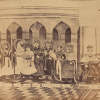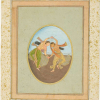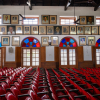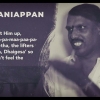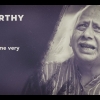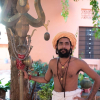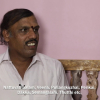Avishek Ghosh: Welcome Naser bhai. We are eagerly waiting to hear about your experiences with qawwali music of Bengal. Since when did your journey begin?
Naser Jhankar: I started my journey with qawwali about thirty five years ago.
AG: From whom did you get your inspiration and taleem (tutelage)?
NJ: I am fifty-three years old now. I have been influenced by qawwali ever since I was fourteen and got in touch with my current father-in-law, a deeply inclined person towards qawwali music. He himself was a Pir and belonged to a Pir family. Every Thursday many qawwali singers used to come to his house to perform. That was where I got my initial training from many veteran qawwali singers.
AG: You were talking about your Pir (spiritual master) Sadiruddin Chishti; please tell us something more about him.
NJ: Sadirudin Ahmad Chishti Chirag-e-marfat was my spiritual master. He was from Enayetpore village of Mednapore district. I came under his discipleship about twenty five years ago. He was a great saint. He has written and composed hundreds of Qalaams (Sufi poems and lyrics) in both Urdu and Bengali languages. By his grace and blessings, I became whatever I am today and whatever I have learned about music and religion in my life is from him.
AG: Naserbhai, I have come across your Bengali qawwali performances from your recordings. Do you know who has first introduced Qawwali in Bengali?
NJ: As much as I know, Khadem Qawwal, the most famous qawwali singer of his time, was the first one to popularize qawwali in Bengali language. He was from Bargachhiya village of Howrah district. Presently there are hundreds of Qawwals in West Bengal. Qawwali has become more popular than before and the number of concerts has increased.
AG: Who was this Khadem Qawwal? Could you please tell us something more about him?
NJ: I have seen him only once in a concert many years ago, when he was about 75-80 years old. He was sharing the stage with another famous qawwal Munna Jhankar. He is still remembered by the audience and contemporary Qawwali singers for his contribution in popularizing Bengali qawwali.
AG: Can you please explain the structure of a Bengali qawwali performance or broadly speaking what is the standard form of performing Bengali qawwali?
NJ: There are two types of presenting and performing in qawwali, depending on the audience and stage. They are called ‘aam’ and 'khas’. I no longer perform popular Qawwali songs at aam concerts. In aam concerts, generally a cheap and popular form of romantic duet qawwali is performed whereas in khas concert we present Qawwali in its pure form in front of the true admirers of music at the Sufi dargahs.
In aam concerts we start with 'hamd’ composed in Urdu or Hindi, whereas in khas concert we present 'naat’ followed by ‘qaul’ or ‘Maula Ali’r Shaan’ mainly composed in Bengali. People don’t really encourage us to sing in Urdu as most of the people don’t understand it. And after all we are Bengali and everyone understands the Bengali songs.
AG: Who are your audience?
NJ: My main audience are those who have faith in Sufi saints and have a love for music. Almost in every Sufi dargah of West Bengal, qawwali is performed regularly. Qawwali is admired by all the major Sufi orders like Chishti, Qaderi and Warsi. I have performed at many different Dargahs in West Bengal.
AG: Naserbhai, how do you perceive the similarities and dissimilarities between the qawwali songs composed in Bengali and songs composed in Hindi or Urdu?
NJ: Qawwali means Qawl-e-Wali or the sayings of the holy saints. I do not find any actual differences between Urdu and Bengali qawwali because the very essence of qawwali is the same. However whichever language it is expressed in it speaks the same thing.
AG: What kind of melodies are used in Bengali qawwali? Do you find the influence of the melodies of Western (North Indian) qawwali or it has its own tunes?
NJ: Qawwali has a unique melody. We are mostly influenced by the Western melodies. But we also improvise and incorporate our musical pattern and perform in our own style.
AG: How did you perceive the journey and changes of Bangla Qawwali in the last thirty-five years?
NJ: I have observed a positive change among the audience in the last few years. Previously the cheap romantic duet qawwalis in Bengali were popular and used to be performed in public gatherings. But recently the general audiences also show their delightful interest for pure Sufiyana qawwali which speaks of the deep philosophy of Sufism. The praise of Allah, Naat-e-Rasul or praise of Nur Nabi and praise of the saints in qawwali performance has become more popular than before.
AG: Did you ever face any social inhibitions during your musical journey?
NJ: I have not faced any such experience and I believe that the lovers of music will always adore qawwali. Some people among us think that music is a sin. But they don’t call us and we don’t keep any relations with them.
AG: Your master Sadiruddin Chishti was a composer and poet of Bengali Qalaams. Do you know any other composer of qawwali in Bengali?
NJ: There is no one like Sadiruddin Ahmad Chishti Chirag-e-marfat, who has composed thousands of Qalaams. He is admired by all the Sufi masters, qawwali singers and disciples for his contribution in Urdu and Bengali qawwali.
AG: We have been really enriched by your words and observations as an eminent practitioner of Bengali qawwali. Now coming to the very end of the discussion, I would like to know how do you perceive the future of Bengali qawwali?
NJ: Qawwali speaks and sings the words of eternity. As the truth is ever-spoken, ever-chanted and ever-relished, the qawwali music will continue its journey as it is.

